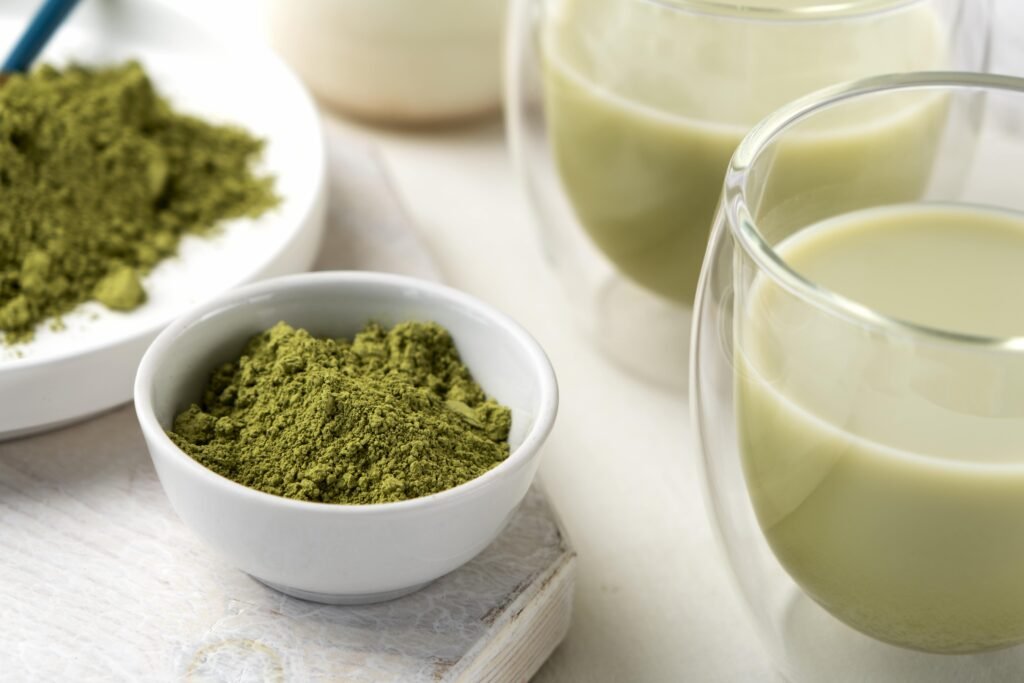Waking up to the smell of freshly brewed coffee is a daily ritual for millions of us. There’s something magical in that first sip: the warmth, the aroma, the gentle buzz of caffeine that nudges us into wakefulness. But what if I told you that this comforting habit—your morning coffee—might be quietly harming your gut? If you’ve ever experienced bloating, indigestion, acid reflux, or other digestive woes, your coffee routine may be partly to blame.
In this in‑depth, blog post, we’ll explore why coffee could be causing gut issues, dive into the science of coffee and gut health, and share practical tips to help you enjoy your favorite brew with less digestive fallout. Written in a warm, personal tone, you’ll feel like you’re chatting with a friend over a cuppa—because, frankly, that’s exactly what this is. Let’s get started!
Table of Contents
The Comfort of Coffee: A Morning Ritual

Every morning, I shuffle to my kitchen in pajamas, bleary‑eyed but hopeful, ready for that first cup. It’s as sacred to me as brushing my teeth—maybe even more. And I know I’m not alone. According to industry research, over 64% of Americans start their day with coffee. It’s our fuel, our ritual, our warm hug in a mug.
But while coffee brings comfort and focus, it’s not always kind to our digestive system. If you’ve ever sipped that steamy elixir only to wince later at twinges of stomach discomfort, bloating, or that all‑too‑familiar burn in your chest, you’re not imagining things. Let’s unpack why this beloved drink may be stirring up trouble in your gut.
Understanding Your Gut: A Quick Primer
Before we dive into the coffee‑gut connection, let’s briefly review what makes up your gut and why it matters:
- Stomach & Acid Production: Your stomach secretes hydrochloric acid (HCl) to break down food.
- Gut Lining & Mucosa: A delicate mucosal barrier protects your gut from irritants and pathogens.
- Gut Microbiota: Trillions of bacteria, yeasts, and other microbes live in the gastrointestinal tract, playing key roles in immunity, digestion, nutrient absorption, and even mood regulation.
When any element of this system is thrown off—whether by diet, stress, medications, or yes, coffee—your digestive health can suffer. Symptoms might include:
- Bloating & gas
- Heartburn & acid reflux
- Diarrhea or constipation
- Abdominal pain & cramping
- Nausea after meals
Sound familiar? That’s the gut calling for help. Now, let’s see how coffee factors in.
The Connection Between Coffee and the Gut-Brain Axis

Did you know your gut is often called your “second brain”? That’s because of the gut-brain axis, a two-way communication system between your digestive tract and your brain. Coffee stimulates your central nervous system and your gut at the same time, which can sometimes trigger symptoms like jitteriness, anxiety, or that “nervous stomach” feeling. If you experience mood swings, irritability, or anxious thoughts after drinking coffee—especially on an empty stomach—it might not be in your head. It’s your gut-brain connection reacting to overstimulation. Being aware of this link can help you choose smarter coffee habits or alternatives that support both calmness and digestion.
Why Coffee May Harm Your Gut
Simply put, coffee is a complex brew of compounds—caffeine, chlorogenic acids, diterpenes, and more—that can have both beneficial and irritating effects on your digestive tract. Here are the main ways it can cause gut issues:
Increased Stomach Acid Production
- How it happens: Caffeine and other coffee compounds stimulate gastrin, a hormone that signals your stomach to produce more acid.
- Why it matters: Excess acid can irritate the stomach lining, leading to heartburn, stomach pain, and even erosive gastritis over time.
I remember mornings when I downed two big mugs before breakfast. By mid‑morning, my stomach would churn so badly I felt nauseous. That’s likely because my stomach acid was in overdrive, attacking my stomach’s protective mucosa.
- How it happens: Coffee’s natural compounds, like catechols and phenols, can irritate the mucosal barrier in the stomach and intestines.
- Why it matters: A compromised mucosal lining makes it easier for stomach acid and microbes to inflame or damage the gut, potentially leading to increased intestinal permeability (“leaky gut”).
Have you ever felt a burning sensation in your gut after coffee, even without heartburn? That’s your gut lining protesting.
Impact on Gut Microbiota
- How it happens: Coffee can alter the balance of gut bacteria—both positively and negatively—depending on the dose and the individual.
- Why it matters: Disruption in your gut microbiome can lead to overgrowth of harmful bacteria, yeast, and can affect everything from immunity to mood.
Studies show moderate coffee intake may actually promote beneficial bacteria, but too much can tip the scales the other way, especially if you’re sensitive or predisposed to SIBO (small intestinal bacterial overgrowth).
Triggering Acid Reflux and Heartburn
- How it happens: Coffee relaxes the lower esophageal sphincter (LES), the muscle that keeps stomach contents from flowing back into the esophagus.
- Why it matters: When the LES relaxes, acid can splash up into your esophagus, causing that painful burning sensation known as acid reflux.
If you’re prone to heartburn, you know the drill: a hot cup of coffee can feel heavenly… until you bend over and regret everything.
Exacerbating IBS and SIBO
- How it happens: The stimulating effect of coffee on gut motility (peristalsis) can speed up or slow down digestion, potentially worsening IBS symptoms.
- Why it matters: IBS sufferers often report that coffee triggers their abdominal pain, bloating, and unpredictable bowel habits. Plus, if you have SIBO, coffee’s effect on gut bacteria can aggravate the overgrowth.
As someone with occasional IBS flair‑ups, cutting back on coffee was a game‑changer. I replaced my second cup with herbal tea and noticed fewer flare‑ups.
Identifying Coffee‑Related Gut Issues
Before you ditch your morning ritual entirely, it’s helpful to pinpoint whether coffee is indeed the culprit behind your digestive woes. Here’s a simple self‑assessment:
- Symptom Journal: Track your coffee intake (time, amount, type) alongside any gut symptoms (bloating, pain, reflux) over 2–4 weeks.
- Elimination Test: Skip coffee for 1 week. Do your symptoms improve?
- Reintroduction Test: Reintroduce coffee at half your usual amount. Do symptoms return?
If your gut feels noticeably better without coffee, you’ve found a clear culprit. But fear not: we’ll explore ways to modify your habit so you can still enjoy coffee without the gut drama.
How to Modify Your Coffee Habit for Better Gut Health (All Tips Together)
Your morning coffee routine doesn’t have to end in stomach pain or acid reflux. With a few simple, gut‑friendly tweaks—and the right throughout—you can enjoy each sip without upsetting your digestive system.
Choose Low‑Acid Coffee Beans
- Why it helps: Low‑acid beans have fewer chlorogenic acids, so they produce less stomach acid.
- How to pick: Look for labels like “low acid coffee,” or choose beans from Brazil, Sumatra, or darker roasts.
- Pro tip: Ask your barista for “stomach‑friendly coffee.”
Switch to Cold Brew Coffee

Bonus: One batch lasts up to a week—no morning brew required.
Why it helps: Cold brewing (12–18 hours in cold water) extracts fewer acidic compounds.
Quick how‑to: Combine coarse grounds and water (1:8 ratio), steep overnight, strain, and store in the fridge.
Adjust Brew Strength and Temperature
- Why it helps: Super‑strong, piping‑hot coffee can irritate the gut lining.
- How to adjust: Use a coarser grind or reduce grounds by a tablespoon. Let your coffee cool for 1–2 minutes before drinking.
Add Gut‑Soothing Mixns
- Collagen peptides: Supports gut lining—1–2 tablespoons dissolve invisibly.
- Cinnamon or turmeric: Natural anti‑inflammatories—just a pinch for flavor and gut calm.
- MCT oil: Soothes inflammation and boosts energy—stir in 1 teaspoon.
Simple recipe: Warm brew + 1 tsp collagen + ¼ tsp cinnamon = creamy, gut‑soothing latte.
Avoid Common Irritating Add‑Ons
- Watch out for: High‑lactose dairy, sugar alcohols (xylitol, erythritol), artificial sweeteners.
- Better choices: Unsweetened oat or almond milk, or a small drizzle of real honey.
Time Your Coffee Around Meals
- Why it helps: Coffee on an empty stomach spikes acid production.
- Smart timing: Eat a handful of nuts, Greek yogurt, or an egg first, then enjoy coffee 10–15 minutes later.
- Alternate: If you prefer coffee first, follow immediately with a fiber‑rich snack.
Try Smaller, More Frequent Cups
- Why it helps: Large mugs overload your stomach with acid.
- How to do it: Swap one 16‑oz cup for two 8‑oz servings an hour apart to spread out acid exposure.
Experiment with Brewing Methods
- Aeropress: Paper filters trap oils and fine particles for a cleaner cup.
- Pour‑over: Full control over water temperature and flow yields a milder brew.
- French press (light steep): Steep only 2–3 minutes, decant immediately to avoid excess acids.
Stay Hydrated and Balance pH
- Water chaser: Sip a glass of room‑temperature water after each coffee to dilute excess acid.
- Alkaline foods: Pair coffee with avocado toast or a banana to help neutralize acidity.
Listen to Your Body and Adjust
- Keep a simple journal: Track how each change affects bloating, reflux, and digestion.
- Personalize: Introduce one tweak at a time to pinpoint what works best for you.
By combining these ten easy strategies—choosing low‑acid beans, trying cold brew, adding gut‑soothing mix‑ins, smart timing around meals, and more—you’ll transform your morning coffee into a gentle, tummy‑friendly ritual. Your gut will thank you, and you’ll still get to savor that rich, aromatic flavor you love.
Alternatives & Supplements for a Happier Gut
Maybe you’re not quite ready to break up with your morning coffee—but your gut might be. The good news? There are fantastic coffee alternatives and gut-friendly supplements that can boost your energy, support digestion, and leave your stomach feeling calm and balanced.
Let’s explore the best options that are easy to try, tasty to sip, and gentle on your digestive system.
Herbal Teas That Support Digestion
- Ginger tea: Natural anti-inflammatory and digestive aid. Helps reduce bloating, nausea, and stomach cramps.
- Peppermint tea: Soothes the digestive tract, especially helpful for IBS symptoms.
- Chamomile tea: A calming, caffeine-free choice that reduces stress and gut tension.
- Fennel tea: A lesser-known gem that helps ease gas and bloating.
✅ Best time to drink: First thing in the morning or after meals for soothing relief.
Chicory Root Coffee (Prebiotic Power!)
- What it is: Made from roasted chicory root, this earthy, rich drink tastes surprisingly close to coffee—with zero caffeine.
- Gut benefits: It’s packed with inulin, a powerful prebiotic fiber that feeds your good gut bacteria.
- How to drink: Brew it just like coffee, or mix into hot water and top with plant-based milk.
Matcha or Green Tea: A Gentler Caffeine Kick

- Matcha: A powdered green tea that offers steady, clean energy without the jittery spike or acidic punch of coffee.
- Why it helps: Contains L-theanine, which promotes focus and calm—great for your gut-brain connection.
- Green tea: A lighter, more hydrating option with antioxidants that reduce inflammation.
✨ Tip: Start with ½ tsp matcha whisked into hot water and add oat milk for a soothing matcha latte.
Golden Milk (Turmeric Latte)
- What it is: A blend of turmeric, ginger, cinnamon, and black pepper—usually mixed with warm plant milk.
- Gut healing power: Turmeric is a powerful anti-inflammatory that soothes the gut lining and supports healthy digestion.
- Make it at home: 1 tsp turmeric + ½ tsp cinnamon + pinch of black pepper + 1 cup oat milk. Simmer gently.
💛 Golden milk is a cozy, caffeine-free way to wake up your body without waking up your gut acid.
Probiotic supplements can restore the balance of beneficial bacteria in your microbiome, improving not just gut health but also mood and immunity. Digestive enzymes are another valuable tool, especially if you often feel full or gassy after meals—they help break down fats, carbs, and proteins more efficiently, reducing the burden on your digestive system. For those whose gut issues are tied to stress, magnesium supplements and adaptogenic herbs like ashwagandha or holy basil can calm the nervous system and reduce cortisol, a hormone that, when elevated, disrupts digestion.
When to Seek Professional Help
While minor digestive discomfort after coffee can often be managed at home, there are certain gut health symptoms that should not be ignored. If you’ve already tried switching to low-acid coffee, adjusting your timing, or adding gut-friendly supplements—and you’re still feeling bloated, nauseous, or uncomfortable—it might be time to talk to a professional.
Signs of poor gut health like chronic bloating, persistent diarrhea or constipation, frequent acid reflux, or sharp stomach pain after meals may signal something more serious. These could point to conditions such as IBS (Irritable Bowel Syndrome), gastritis, food intolerances, or even ulcers. If symptoms last more than a couple of weeks or interfere with your quality of life, don’t wait—seek medical advice.
You should also see a doctor for digestive issues if you experience more alarming symptoms like blood in your stool, black tarry stools, unexplained weight loss, fatigue, or loss of appetite. These may indicate underlying health problems that require prompt diagnosis and treatment.
Sometimes, what feels like “coffee gut” might actually be related to leaky gut syndrome, microbiome imbalance, or undiagnosed food sensitivities. A qualified professional—such as a gastroenterologist, nutritionist, or functional medicine doctor—can run tests to find the root cause and create a customized plan to support your gut health safely.
Trust your instincts. If something doesn’t feel right, don’t push through the pain or dismiss it as “normal.” Your gut plays a major role in your immune system, mood, and overall well-being. Getting the right help early can make all the difference and get you back to enjoying your mornings—coffee or no coffee—with comfort and confidence.
Is Decaf Coffee Better for Gut Health?
Switching to decaf coffee might seem like an easy fix, but it’s not always a guaranteed solution for gut problems. While decaf contains significantly less caffeine, it can still have acidity and compounds that irritate sensitive stomachs. However, choosing a water-processed decaf or a low-acid decaf roast can be much gentler on digestion. If your main issue is caffeine sensitivity—like shakiness, stomach cramps, or heartburn—then decaf could be the ideal middle ground. Just make sure to avoid chemically processed decaf brands, which might carry residues that further stress your gut.
Simple Morning Routine for a Happier Gut (With or Without Coffee)
Creating a gut-friendly morning routine can transform your whole day—even if you still drink coffee. Start by hydrating with warm lemon water or water with a pinch of sea salt to kickstart digestion and balance electrolytes. Next, take 5–10 minutes for deep breathing, gentle stretching, or a walk to help stimulate your gut motility. Eat a light, nourishing breakfast that includes fiber, healthy fats, and protein—think chia pudding, oatmeal, or eggs with avocado. If you choose to drink coffee, wait until after your food settles. This simple shift in routine can help protect your gut lining, reduce acidity, and support regularity without needing to quit caffeine cold turkey.
Conclusion: Your Gut Is Talking—Time to Listen
Your morning coffee might be doing more than waking you up—it could be quietly stressing your gut. The good news? You don’t have to quit coffee forever. With a few smart tweaks, like switching to low-acid brews, trying gut-friendly alternatives, or supporting digestion with natural supplements, you can protect your gut without losing your morning ritual.
If you’ve been feeling off, bloated, or overly anxious after your cup, it’s worth paying attention. Start small—swap one coffee this week for a calming herbal tea or gut-boosting matcha and see how you feel.
👉 Take the first step toward a healthier gut today.
Your body will thank you—and your mornings might feel even better than before.
